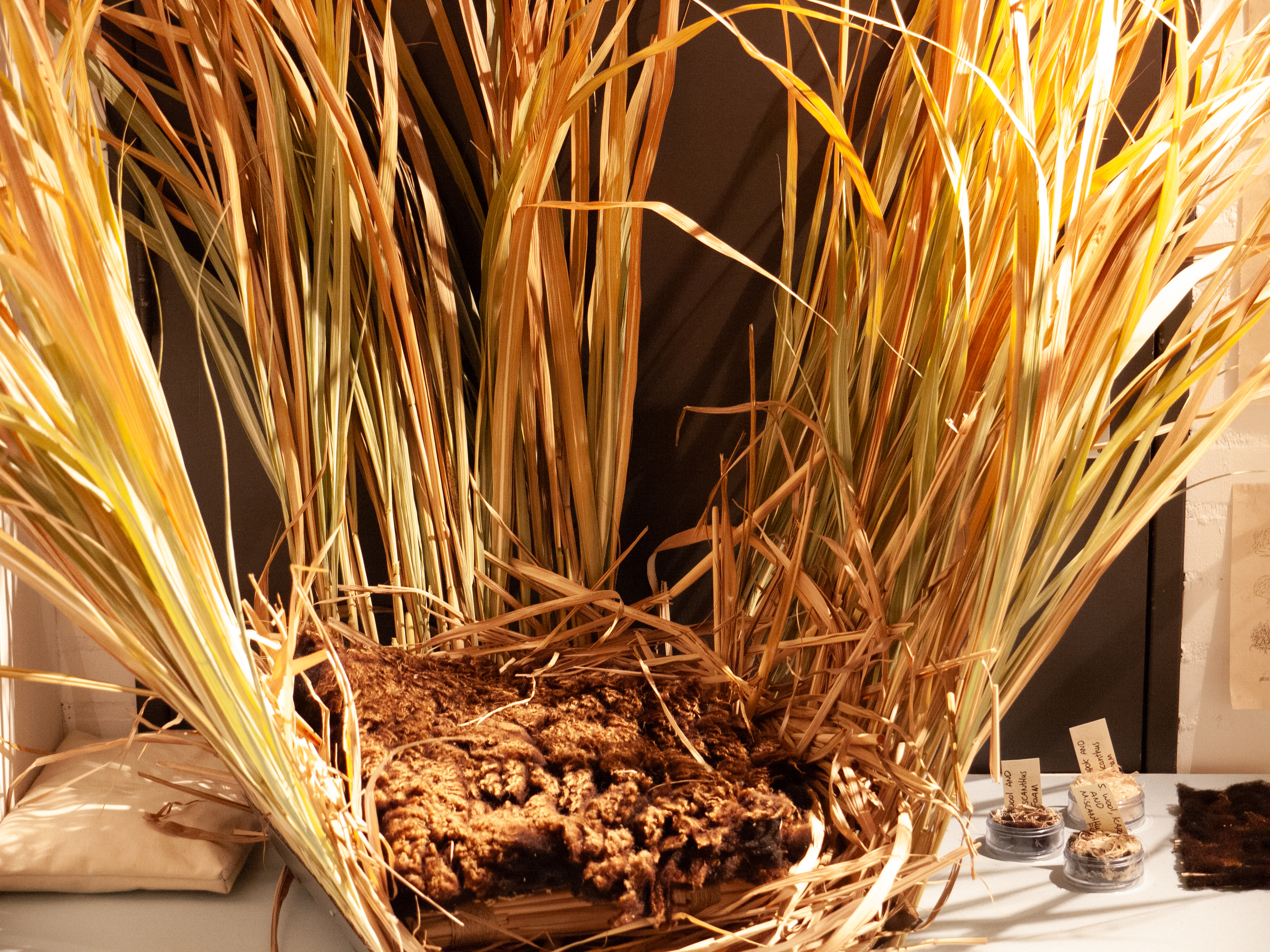I have always had a love-hate relationship with fashion.
I know, this is a phrase that is commonly used by many autonomous fashion designers, but that is really how I see it.
For me fashion is an expression of your identity and not a merely quickly fading trend). This is the reason why my work is not committed to trends, maybe only in a social way. The ability of carrying out your identity through fashion can go far beyond trends that fashion designers create. It is about displaying who you are and what you stand for; clothing is a great display tool to do so. However, I am not trying to make a statement against trends, I don’t encourage to ban them; trend is just not my main focus. If rough knits were in trend, I would not deliberately go for a refined one. I am just not a trend-maker; my work is not about that.
I feel like this point of view matches the WdKA life principles. It lays focus on conceptual motivation, instead of just classical approach to fashion. It expects you to have a healthy dose of sense of style and a feeling for trends, but let me tell you this: if your motivation behind a coat design is merely the shape of a flower, then nobody will be impressed. What do you want to say with it? What can you do with it? I question my work process constantly. During the execution process you don’t necessarily have to stick to fabric. I, for one, have actually spent a lot of time in the Material (Wood) Station. You are as free as a bird to travel beyond boundaries; create a metal pair of pants if you feel like it and if your concept demands it.
Another fun perk of academy-life: I profit from the experience not just in work, but also in life in general. I am not fussy, I know how to use a saw and more. Experience is the best teacher.
The New Fashion
As crazy as it may sound, I have honestly never used a sewing machine. Not to deliberately swim against the tide - my approach has just always been different. I became aware of this fact in my second semester and thought: ‘Let’s see how long it takes before someone notices’. My work varies a lot in execution; I have made molds from papier-maché that were attached to felt; I glued and melted Plexiglas and so on. Later on I discovered the knit machine, a common machine to make clothing without really having to sew.
Today’s society is all about our digital image. With this in mind I discovered something fascinating; we actually don’t have to wear clothes any longer. Why are we still so busy with mass fashion production if all that it’s about are digital likes? The more followers you have and the more likes your receive, the bigger the chance you have at getting a collaboration. Whenever I’m scouting a model for a shoot and suppose he/she has an identical twin, I will for sure choose the one with the largest online reach. Society becomes more and more like that. And we are manipulating images with countless filters to receive even more likes.
If there’s one lesson I have learned, it is that the process of creation comes in many shapes and sizes.
This fascination became the concept of my graduation collection; the clothes that you can only wear through the camera of your phone, as a filter. You can dress up your digital image without contributing to vile practices as child labour and mass production; that’s my message. I believe this can be part of the future. I had the opportunity to show my collection during Amsterdam Fashion Week. My teacher did warn me - I was going to be criticized and some will not understand. She was right, I was ‘the girl from Rotterdam who did something digital’. A juror told me that ‘it’s all about vintage now’. I asked him where people like to show-off that vintage suit. My message is not about real-life wearing, and not everyone gets that because the idea is so new. My app reflects my interpretation of fashion - I am always eager to discover new ways to approach fashion that sends a message.
A Spotlight on Identity
When it comes to my personal digital presence, I am far behind. My Facebook profile is only three years old and I have joined Instagram about six months ago. The digital era is now, you can’t escape it.
Just imagine you meet someone in a bar and this person starts throwing questions at you. ‘How old are you?’ You’ll probably answer it.
And what about: ‘Do you have pets? What’s your mother’s name? And your father’s? Are they still together? With which friends do you hang out the most?’ That is personal. You probably don’t want to share this information with a stranger. Nowadays we share our Facebook profile to stay in contact, more often if we compare it to a telephone. By doing it, we automatically give all the answers to the questions we normally would consider too private to answer. That is kind of weird.

NU OOK OFFLINE (NOW OFFLINE TOO)
Annabel & Esther:
"We don’t consider fashion as a trend-related medium, but rather as a tool for communicating a project to the public in a way that makes an impact."
Together with my partner Annabel de Kok I have decided to make a project based on this discrepancy, Your online vs. offline identity. We have designed sweaters based on someone’s Facebook profile. The question is: do you dare to be the same person offline as you are online? It is fascinating, we happily share a personal image as a profile photo with everyone and feel the excitement when we receive likes and comments. But we feel awkward when we do the exact same thing in real life.
Only at the moment when you dare to take part in this project, it may become clear how twisted online publicity actually is. To me, it is not about creating a solution; it’s about making people aware of their online actions.





